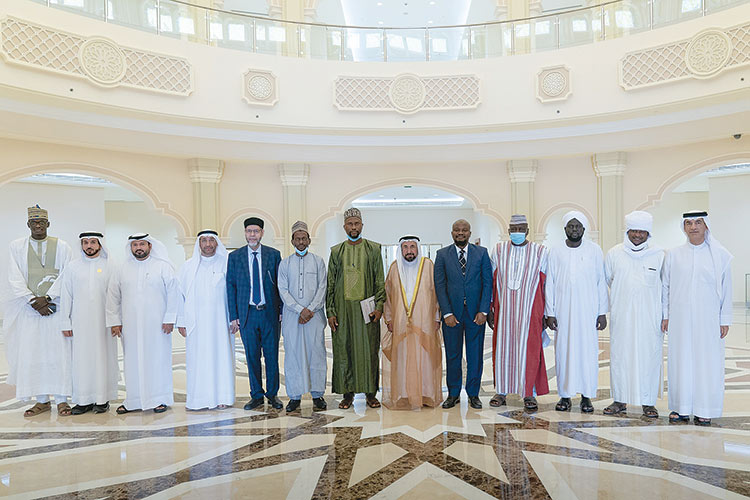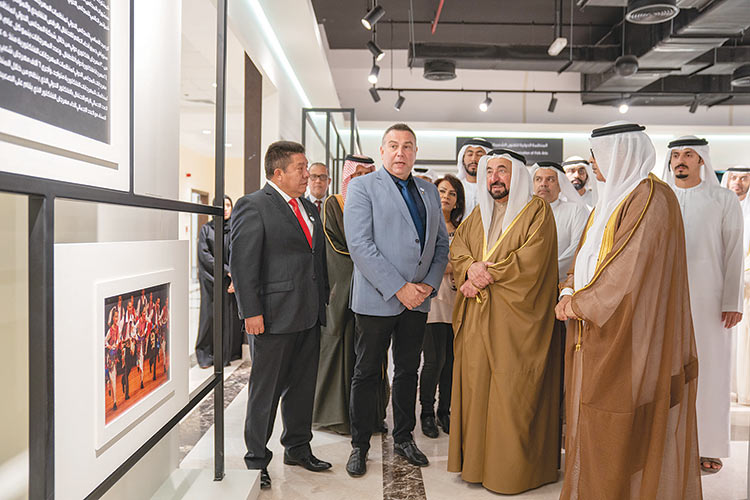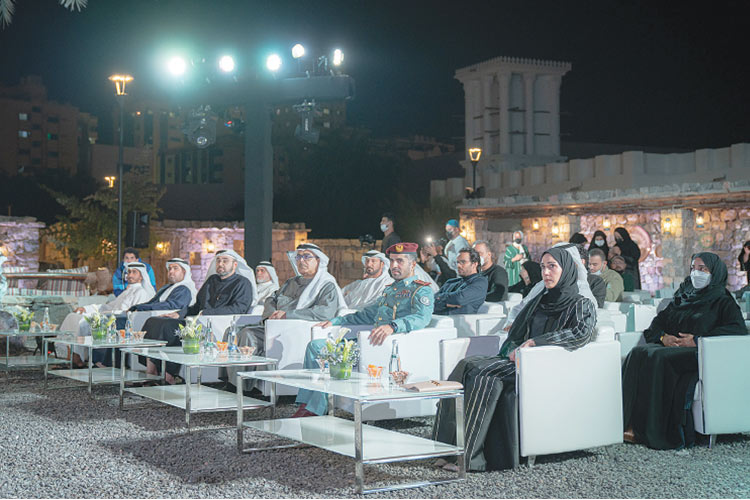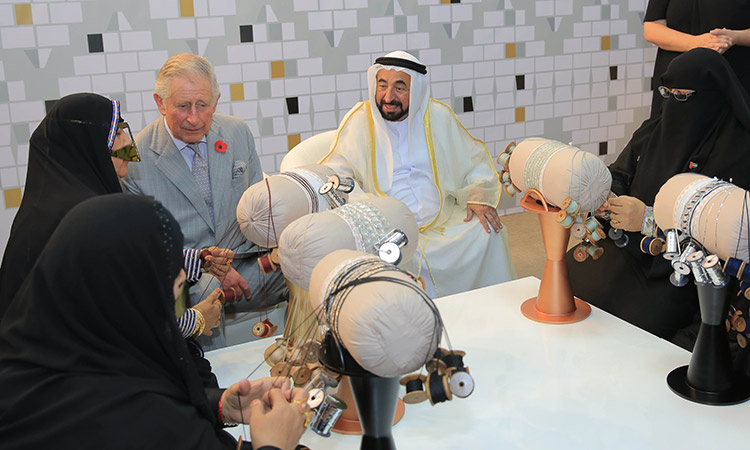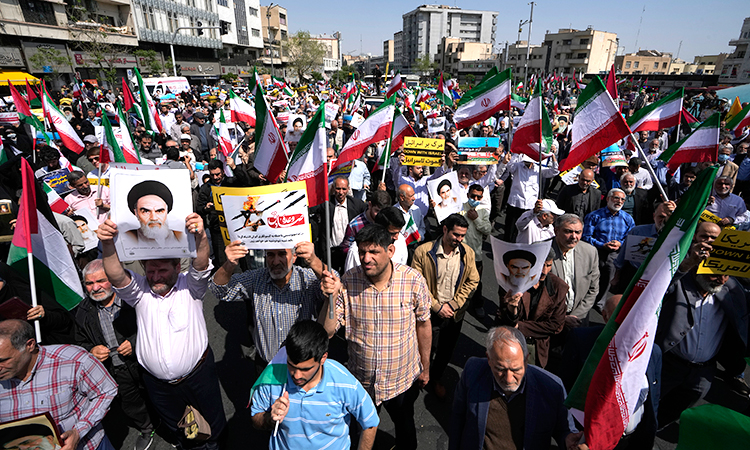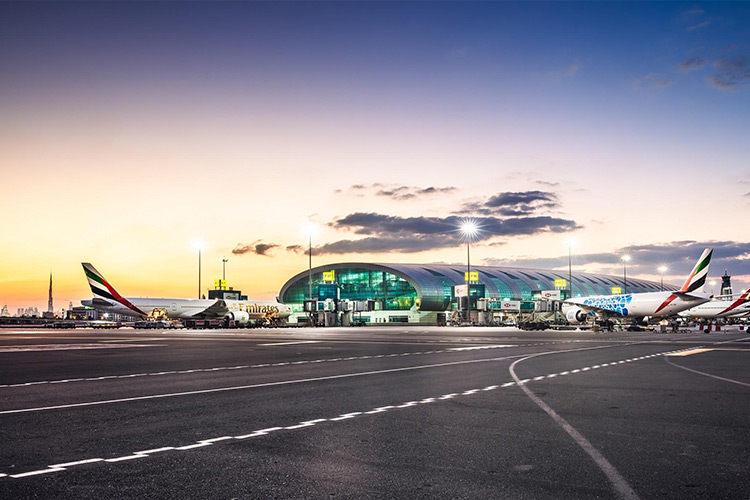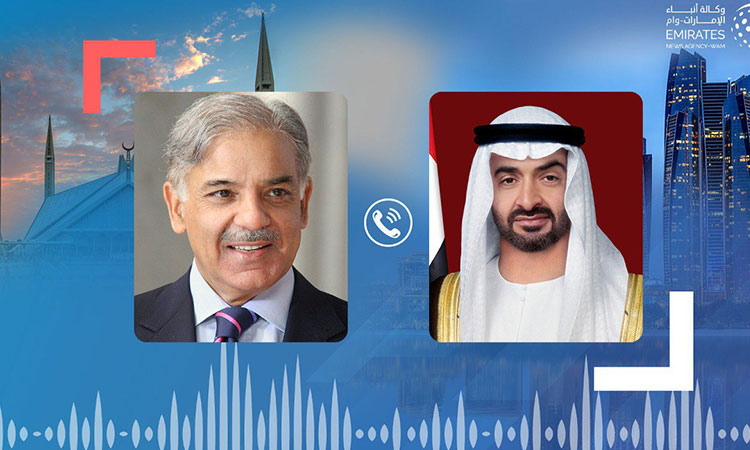Sultan beefs up support for folklore, heritage
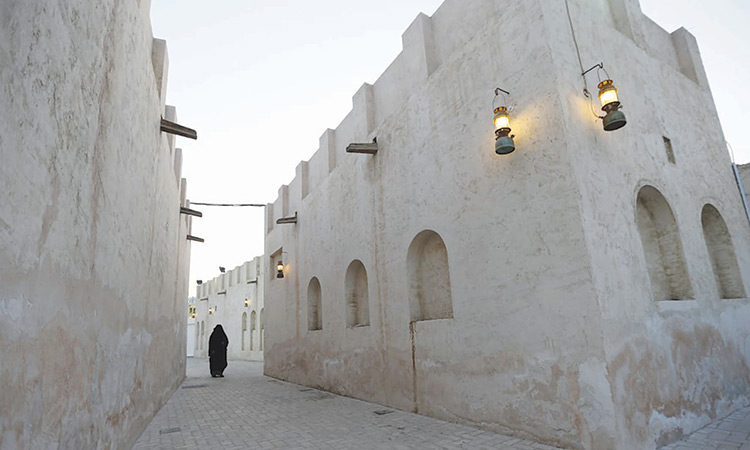
An Emirati woman walks past traditional houses in Sharjah. File/ AFP
This came on Tuesday when Sheikh Sultan, in the presence of Sheikh Sultan Bin Mohammed Bin Sultan Al Qasimi, Crown Prince and Deputy Ruler of Sharjah, opened the Sharjah Heritage Days, held under the theme “Craft and Crafts” in the heritage area in the Heart of Sharjah.
His Highness Sheikh Sultan Bin Mohammed Al Qasimi was handed over the gold necklace by Abdullah Ali Khalifa, President of the International Organisation of Folk Art, a tribute and appreciation to the Ruler of Sharjah, as a distinguished figure among leaders, senior thinkers and writers who play global roles in the development and support of arts and heritage.
Sheikh Salem Bin Abdul Rahman Al Qassimi, Head of the Ruler’s Office, Sheikh Mohammed Bin Humaid Al Qasimi, Director of Statistics and Community Development, Major General Saif Al Zari Al Shamsi, Commander in Chief of Sharjah Police, Rashid Ahmed Bin Al Sheikh, and a number of seniors attended the opening ceremony.
During the opening ceremony, the national teams of the participating countries presented popular and folkloric art shows representing the culture of their countries, in addition to the maritime art, mountain art and the art of the UAE.
The Ruler of Sharjah toured the Sharjah Heritage Days, listening to an elaboration of the most important programmes and activities.
During the tour, Sheikh Sultan was briefed on the pavilions, departments, institutions and companies participating in Sharjah Heritage Days. He also was told about the UAE’s agricultural, mountainous and desert environments as part of the Sharjah Heritage Days.
HELPING CITIZENS
The Sharjah Debt Settlement Committee has approved Dhs70,609,000 as the repayment plan to settle cases for citizens in the Emirate of Sharjah.
The move is in implementation of the directives of His Highness Dr Sheikh Sultan Bin Mohammed Al Qasimi, Supreme Council Member and Ruler of Sharjah.
Rashid Ahmed Bin Al Sheikh, Chief of the Sharjah Emiri Court and Head of the Committee, stressed that the committee approved to pay the debts of individuals who have defaulted as part of the 18th batch of payments.
Al Sheikh added that the total amount processed since the first batch until the 18th, is Dhs662,599,153 for 1320 beneficiaries.
SHARJAH FLOURISHING
In an unrelated development, in a statement, Dr Al Mosteghanemi, Sharjah’s Arabic Language Academy Secretary-General, revealed that a first-of-its-kind project, compiling the ‘Historical Dictionary of the Arabic Language’ is under way. The dictionary will examine 17 centuries of development in the Arabic language, as well as Arab culture. This is as per the directives of His Highness Dr Sheikh Sultan Bin Mohammed Al Qasimi, Supreme Council Member and Ruler of Sharjah, and “will mark a new era for the Arabic language lexicon.”
Al Mosteghanemi describes the dictionary as a ‘great work’, representing the collective memory of the Arab world and documents its news, literature and history. He revealed that the creation of this dictionary previously undertaken by several researchers and institutions proved to be too herculean for them given the scale of the project. “The project was resumed after receiving the Sharjah Ruler’s directives, and is nearing completion. The dictionary will be published soon,” he added.
Its contents will chronicle Arabic language and culture from the past 17 centuries in three research stages - old inscriptions, the Semitic branch of languages with a focus on Arabic, as well as the practical use of the language. It will encompass five ages: pre-Islamic, Islamic (Umayyad and Abbasid), separatist dynasties, the Mamluk Sultanate, and modern history.
WAM
